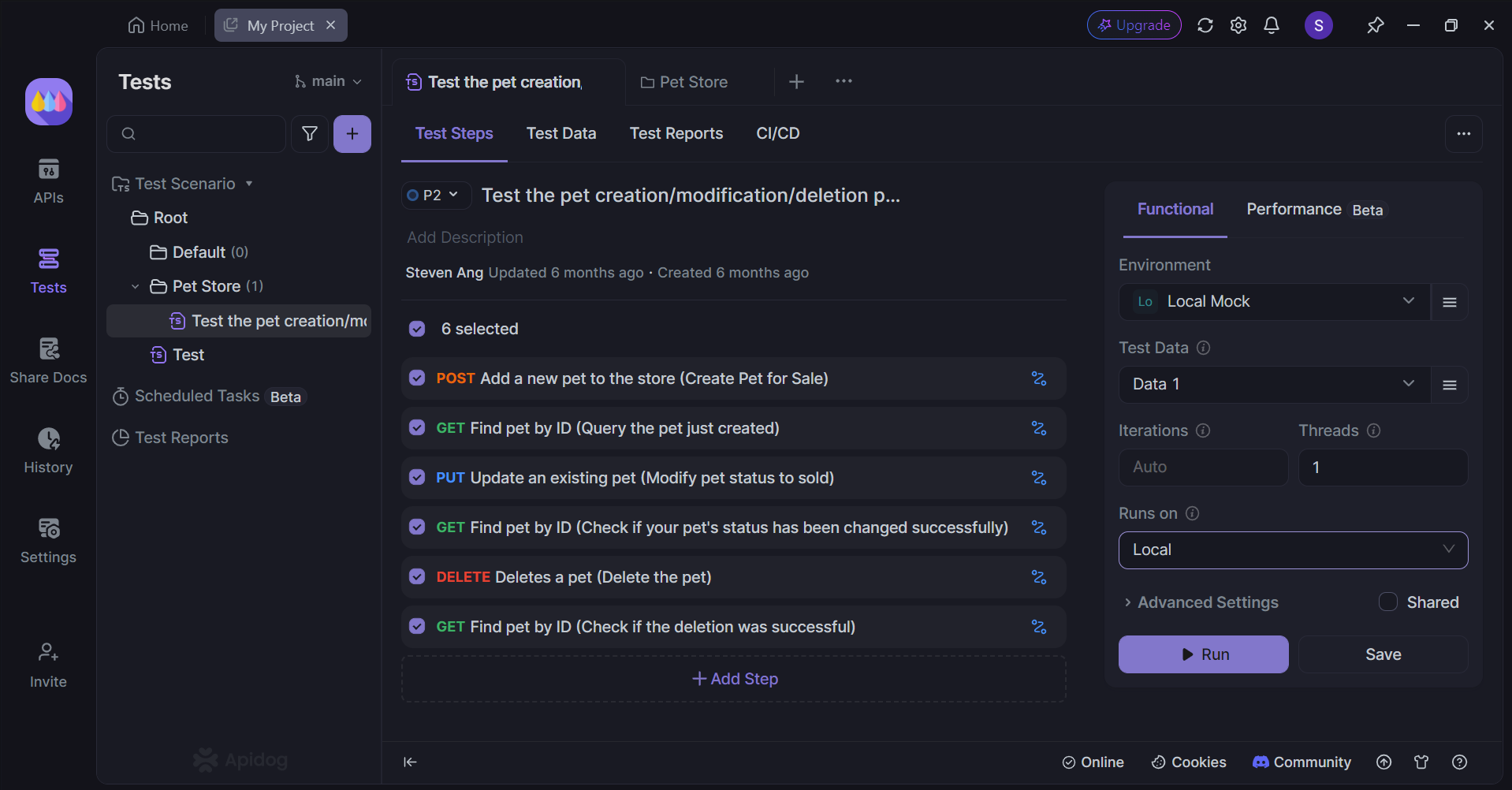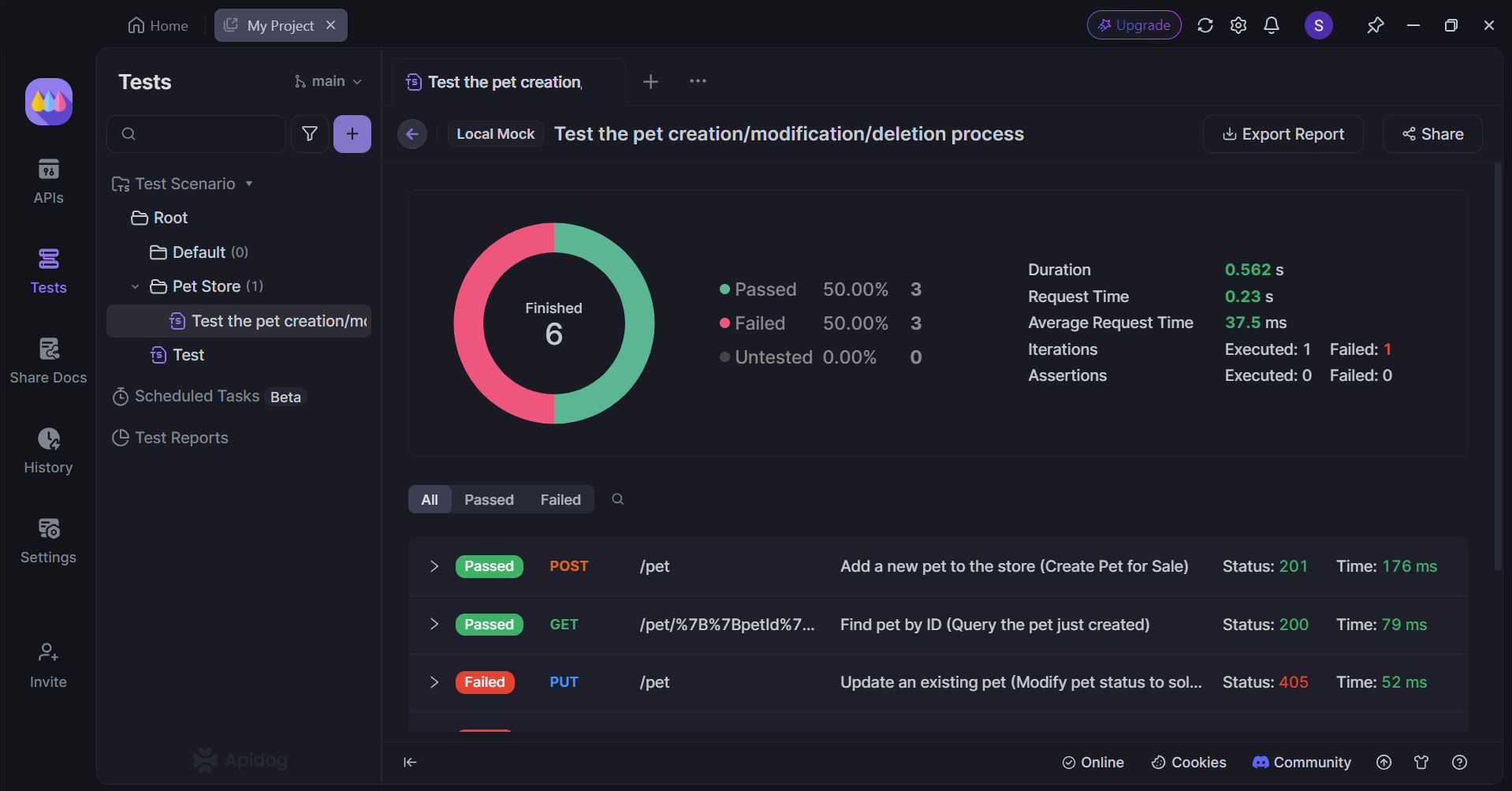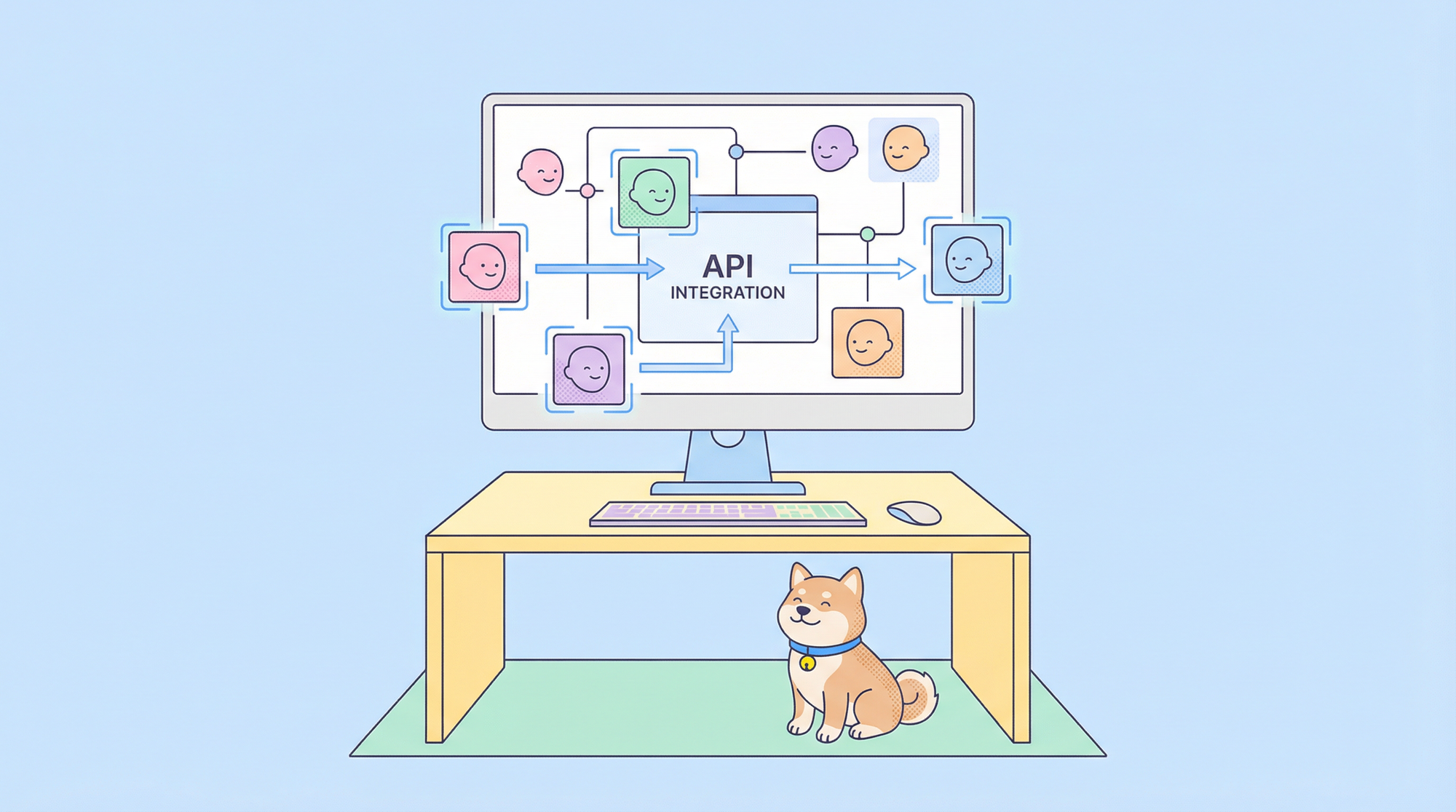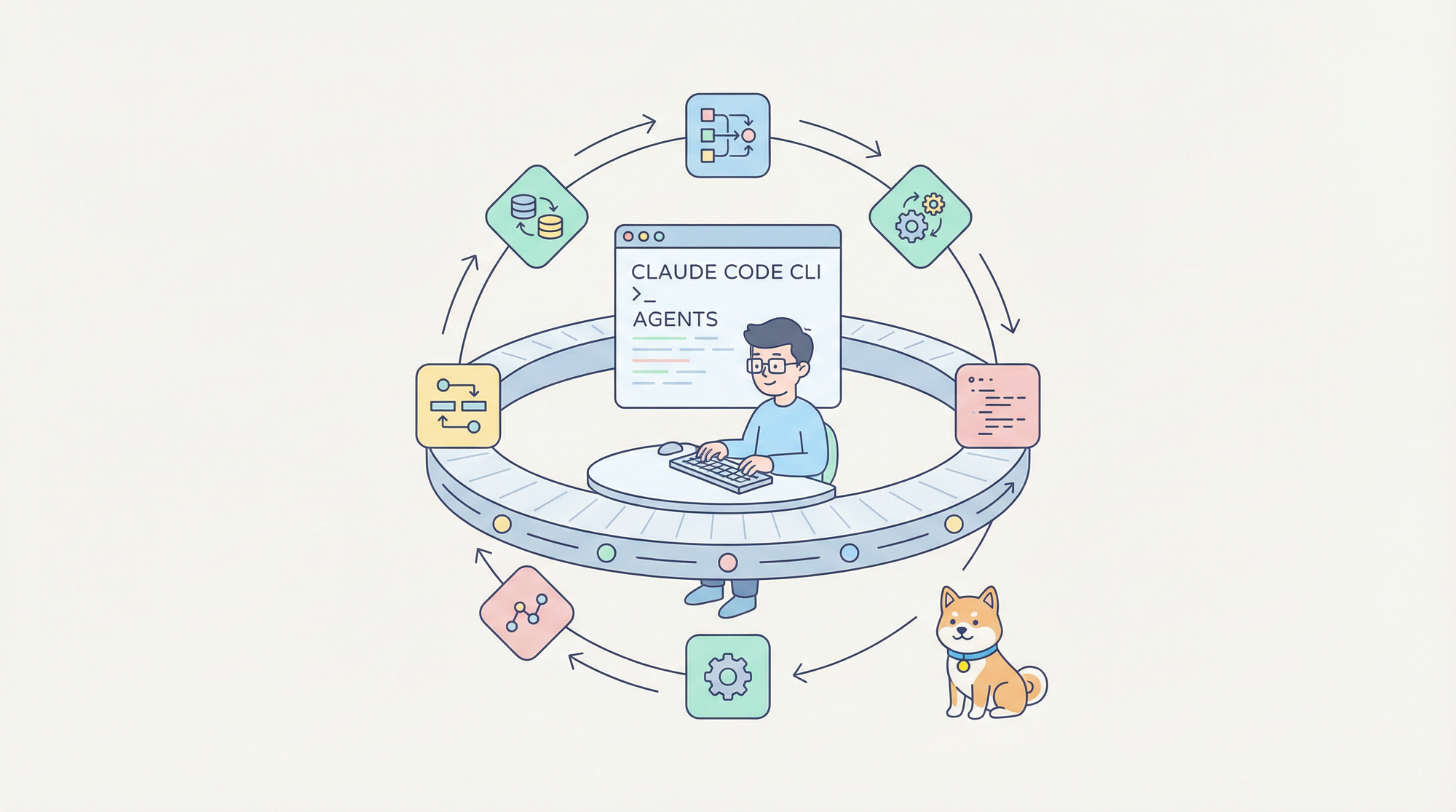Selenium and Appium are leading open-source testing frameworks that serve distinct purposes in the automation testing landscape. While Selenium dominates web application testing, Appium specializes in mobile application automation.
From API design and testing to documentation and mocking, Apidog offers everything you need in a single interface. With features like automated CI/CD integration, custom scripting, and code generation, you can enhance your API development process instantly.
Experience the power of unified API management by clicking the button below!

Core Architecture and Functionality
Selenium's Framework
Selenium operates through a WebDriver protocol, primarily focusing on browser automation. Its architecture incorporates a WebDriver for seamless browser interaction, along with browser-specific drivers that enable precise control over different web browsers. The framework includes comprehensive client libraries available in multiple programming languages, making it highly versatile for diverse development teams.
Appium's Framework
Appium builds upon Selenium's foundation by implementing a sophisticated client-server architecture powered by NodeJS. It utilizes the Mobile JSON wire protocol for efficient communication and incorporates platform-specific automation frameworks, including XCUITest for iOS and UiAutomator for Android, ensuring robust mobile testing capabilities.
Key Features
Selenium Capabilities
Selenium offers extensive cross-browser compatibility, ensuring applications work consistently across different browsers. The framework provides robust support for multiple programming languages, enabling teams to work with their preferred development tools. It excels in web element interaction, seamlessly integrates with various testing frameworks, and benefits from extensive community support.
Appium Capabilities
Appium excels in both native and hybrid app testing scenarios, providing comprehensive cross-platform mobile testing capabilities. The framework offers direct access to device-specific functionality without requiring any modifications to the application under test. It supports both real device testing and simulator environments, making it versatile for different testing needs.
Primary Benefits
Selenium Advantages
Selenium stands out as a cost-effective open-source solution with exceptional browser compatibility across platforms. Its rich ecosystem and community support provide extensive resources for troubleshooting and development. The framework offers comprehensive documentation and supports parallel testing capabilities, significantly reducing execution time.
Appium Advantages
Appium's strength lies in its cross-platform mobile testing capabilities and support for multiple programming languages. The framework provides seamless access to native device APIs, enabling thorough testing of device-specific features. It benefits from a large and active community and integrates smoothly with existing testing frameworks.
Common Use Cases
Selenium Applications
Selenium excels in comprehensive web application testing scenarios, enabling thorough cross-browser compatibility verification. The framework is particularly effective for regression testing and functional testing of web applications. It also provides robust capabilities for performance monitoring across different browsers and platforms.
Appium Applications
Appium specializes in native mobile app testing and hybrid app testing scenarios. The framework efficiently handles mobile web testing requirements and ensures cross-platform compatibility verification. It excels in testing device-specific functionality, making it invaluable for mobile application development.
Technical Considerations
Programming Language Support
Selenium offers extensive language support, including Java, Python, PHP, JavaScript, Ruby, C#, and Perl, making it highly accessible to development teams with diverse programming backgrounds.
Appium focuses on core languages including Java, JavaScript, Python, and Ruby, providing robust support for mobile automation needs.
Setup and Implementation
Selenium Setup
Selenium implementation requires browser-specific drivers and features a straightforward environment configuration process. The framework enables direct browser interaction, making it relatively simple to set up and maintain for web testing purposes.
Appium Setup
Appium requires a more complex initial setup, including NodeJS installation and platform-specific SDK configuration. The framework needs proper device and emulator configuration, making the initial setup more involved but providing comprehensive mobile testing capabilities.
Integration Capabilities
Both frameworks offer extensive integration options. Selenium seamlessly integrates with continuous integration tools, test management systems, reporting frameworks, and version control systems.
Appium provides robust integration with mobile device clouds, CI/CD pipelines, test automation frameworks, and performance monitoring tools.
Making the Right Choice
Choose Selenium When
Selenium is the optimal choice when web application testing is the primary focus and cross-browser compatibility is crucial. It's particularly suitable for teams requiring extensive programming language options and those focusing on web service testing requirements.
Choose Appium When
Appium becomes the preferred choice when mobile application testing is the priority and cross-platform mobile testing is required. It's ideal for testing native or hybrid applications and when device-specific functionality testing is essential to the project's success.
Combined Implementation
Many organizations benefit from implementing both frameworks together. This approach enables comprehensive testing coverage and a unified testing strategy. By leveraging the strengths of both platforms, teams can achieve efficient resource utilization and ensure thorough testing across web and mobile platforms.
Future Outlook
Selenium Evolution
Selenium continues to evolve with enhanced support for modern web technologies and improved handling of dynamic elements. The framework is advancing its integration capabilities with cloud services, making it increasingly versatile for modern web testing needs.
Appium Advancement
Appium is advancing with expanded platform support and enhanced performance optimization features. The framework is developing improved test stability mechanisms and better debugging capabilities to meet the growing demands of mobile application testing.
Apidog - Complete your API Testing Tools
Is Appium and Selenium the right fit for you? If it does not satisfy your requirements for app testing, you should strongly consider Apidog.

As an all-in-one API platform, Apidog equips developers with essential features for API development, including testing, mocking, and documentation capabilities.
Let's explore how Apidog's testing functionality works in practice!
Get to Know Apidog's Test Scenarios
Apidog has a unique testing feature called test scenarios.


Through its intuitive visual interface, Apidog makes it possible to test API sequences by linking and validating connected endpoints. This capability proves especially useful when dealing with interdependent APIs that must follow a specific execution order to function correctly.
Apidog Test Scenario Results

Once testing is complete, Apidog produces a detailed performance report showing each request's success rate, failure points, and the overall time taken to execute the entire API sequence.
Individual API Endpoint Testing With Apidog

For single API testing, Apidog offers a straightforward process - simply click the Run header and then Send to examine individual endpoint responses in isolation.

Conclusion
The choice between Appium and Selenium ultimately depends on specific project requirements and testing needs. While Selenium excels in web application testing with its mature ecosystem and broad browser support, Appium provides comprehensive mobile testing capabilities with cross-platform support. Many organizations find value in implementing both frameworks to create a comprehensive testing strategy that covers both web and mobile applications effectively.




